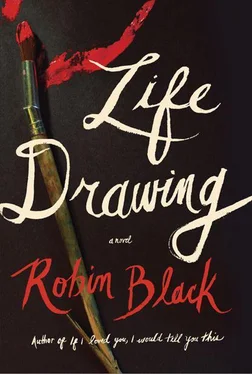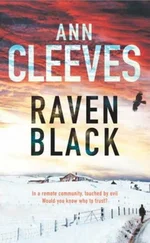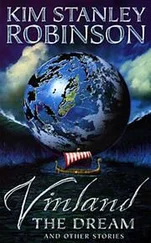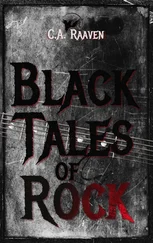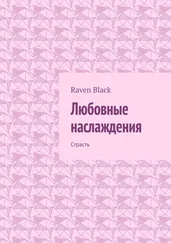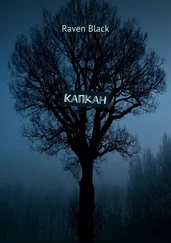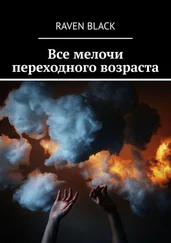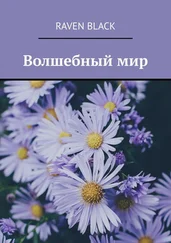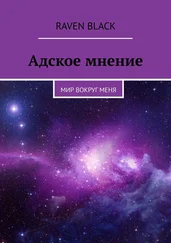“She’s trying so hard not to die,” Alison said. “I can’t believe I did this.”
“It happens, Alison. It happens all the time.” Owen had stepped away, but I could hear him giving our location. I sat among the fallen leaves on frozen mud. “Your head. You have a cut. Owen,” I called. “An ambulance. Be sure.”
She started to sob, her face lowered into her hand, so the blood smeared her cheek, her palm. I put my arm around her shoulders. The doe was young, I saw. And seemed to be looking at me. I touched her with my other hand, just behind her ear, so that we, the three of us, made a circuit, complete, a current of life rasping unevenly through. I wanted to encourage the shattered animal to die. I wanted my touch to convey somehow, somehow, that soon the others would arrive, with lights, with efficiency, procedure, protocol. That being alive would be no gift.
Beside me, Alison’s body shook with sobs.
“They’re on their way,” Owen said.
“Maybe she won’t die,” Alison said. I tightened my arm around her.
“It happens all the time,” I said again.
A siren in the distance. Lights flashing at the next bend in the road. I took my gaze from the doe, and while I watched the ambulance approach, the animal died.
The moments, minutes, after that were just as I’d imagined them, except that where there had been a life, there was only the body of a deer, left on the ground while an EMT took charge of Alison. The cut was deeper than I had thought, deeper surely than Alison had known. She might have been concussed as well. There could be internal injuries. She had to go to the hospital for observation. They laid her on a cot, covered her with a sheet that was soon bloodied, small dark patches, spreading. They strapped her down.
“I’m fine on my own,” she said, when I offered to go with her. “I’m suddenly so tired.”
A policeman walked up to us, stern, almost angry. “You women got that close to a dying deer? You’re lucky the animal didn’t kick your heads right open. Those things are mean as snakes when they know that they’re goners.”
“I’m sorry,” I said. Sincere. Like a child who’s crossed the road without looking, and knows that she’s done wrong.
We drove home mostly in a silence thick with what wasn’t being said.
“I told her it could happen to anyone,” I finally said. “And it could. But the fact is she drives like a maniac, and that has to raise the odds.”
“That has to raise the odds,” Owen said. “I agree.”
By the time Nora arrived the next morning, I had already fetched Alison from the hospital where she’d spent the night, and set her up in our living room — not because she needed much tending, but because it seemed wrong to leave her by herself with memories, with images of the accident. There had been a mild concussion, the doctors thought, and the gash on her head had required twelve stitches. Everything else seemed to be okay, just bruises everywhere, but she was badly shaken. By tacit agreement neither of us mentioned the doe, speaking only of headaches and sore muscles, exhaustion, the sterility of hospitals, the good fortune of her injuries not being worse.
Alison had called Nora and told her what had happened, but still Nora’s face jumped as if electrically shocked, at the sight of her mother on our couch, bandaged and pale. “Oh my God, Mom. Oh my God.” She sat beside her, finding a space on the cushion’s worn edge where no space had been before. Alison’s eyes closed; her lips relaxed into a slight smile. I felt like the intruder I was and left the room.
Ididn’t see much of them over the next few days, and neither did Owen. After Nora and I bundled Alison up to go home, the two of them stayed huddled there together. That was how I pictured them, never apart. I dropped their mail on their porch, and it disappeared. We had our first snowfall, close to half a foot. Owen shoveled our walk, and then did theirs, cleared both cars off, but no one emerged to thank him.
During this period, a new quality of fragility seeped into my understanding of who they were. The car accident had undoubtedly been a turning point for me, Alison’s bravado and daring seeming more like recklessness and desperation now. And as enviable as I found their bond to be — how could I not? — I had a far clearer sense of the shakiness of any ground on which they stood, so when I looked across the glistening white hill, I saw most clearly the shabbiness of the house, the shutters that were askew, the missing porch rails.
And as for the revelation that Owen and Nora had been in touch, that faded from my list of worries. He had used their contact to make me feel bad, a meaningless revenge for Laine’s visit, to which he was arguably entitled. Maybe it had helped him get past his anger to bask in Nora’s adulation a little bit. I could deal with that. Life felt both big and precious during those soft, snowy days. There was room enough for the petty to be seen as exactly that.
I kept to a regular work schedule then, trying not to get too discouraged. It would have been so easy, I often thought, just to cover up the soldiers entirely, transform these canvases into nothing more than a series of portraits of rooms in my house. But I didn’t let myself.
Over time, Alison and Nora emerged and our lives began again to intertwine. Dinners for four. Walks for two — sometimes three, as Nora occasionally joined her mother and me. More often, though, I would see her heading to the barn.
And those visits to Owen didn’t go unexplained. They weren’t surreptitious. She had admired the space, the churchlike atmosphere — the very quality I had thought only I perceived — and he had told her to feel free to join him. She could read or she could write. She only had to be quiet. The invitation was extended over dinner at our house, this time bread and cheese and ham in the living room, nothing like our first, elaborately prepared meal.
“In the city,” he said, “I always liked to work with other people in the space. It jogged my brain somehow. It’s Gus who can’t bear having anyone around.”
“Well, it’s a little different for a painter,” I said. “It’s all so visible. I doubt you’d have liked it if the other customers at the coffee shop had been reading your every word.”
“I don’t know,” he said. “There were days when I could have used the critique.”
“You had lots of company there, didn’t you?” Alison indicated the painting of Ida’s shop.
“I did. And actually I loved the hubbub. But nobody had the least interest in what I was doing. I’ve rarely felt more invisible in my life.”
“I would feel like an intruder,” Nora said. “I couldn’t.”
By then, mid-November, her hair was noticeably longer than when we’d first met. Like her mother, she always wore a little bit of makeup, barely visible, almost as if more a reminder of her femininity than anything else. That night, she had on jeans through which you could see her hip bones when she stood, and a long-sleeved black top, through which at moments you could see her nipples. The shirt collar fell just at the level of the cross, so the cross would slip beneath the cloth, only the occasional glint of that very fine chain remaining visible, although once you knew the cross was there, you could see that too.
As she protested that she couldn’t impose, I knew that she would. And there was something about the openness with which this all unfolded that made it seem churlish to object. He was mentoring her. She was in need of a positive male role model. Alison repeated these phrases to me all the time. Owen spoke elliptically in the same terms as if it were an assessment of their dynamic to which we had long ago agreed. And I said nothing to object.
Читать дальше
